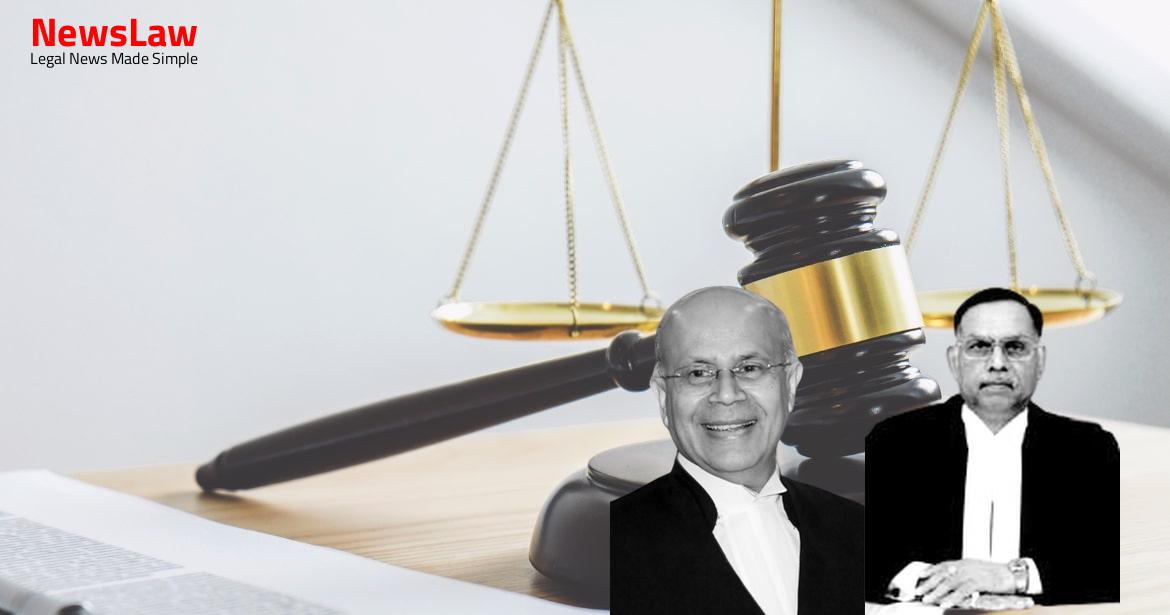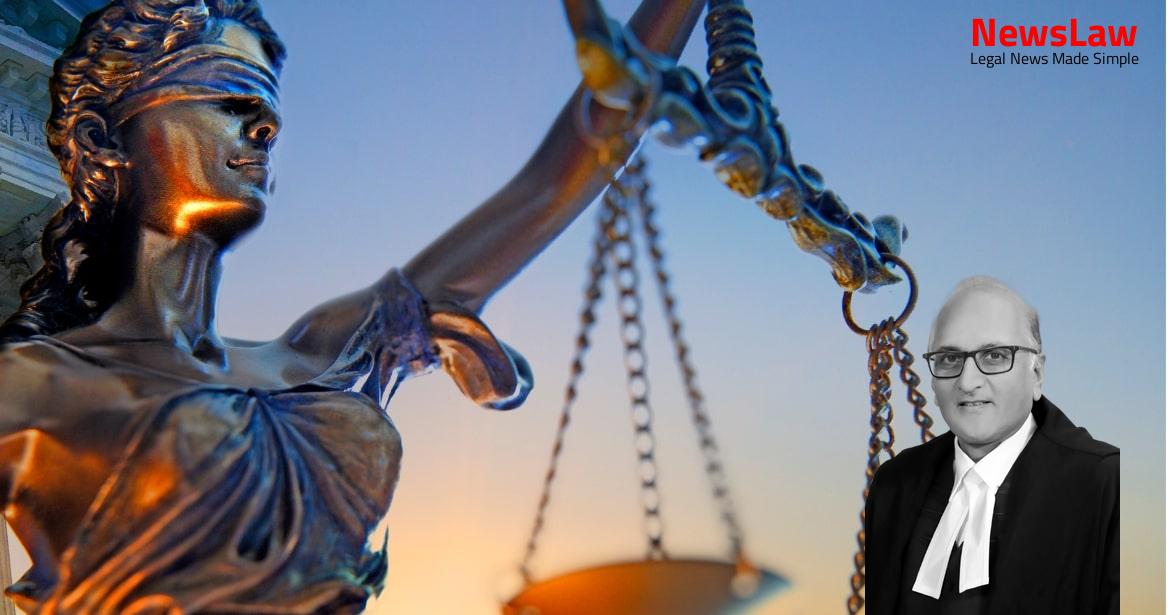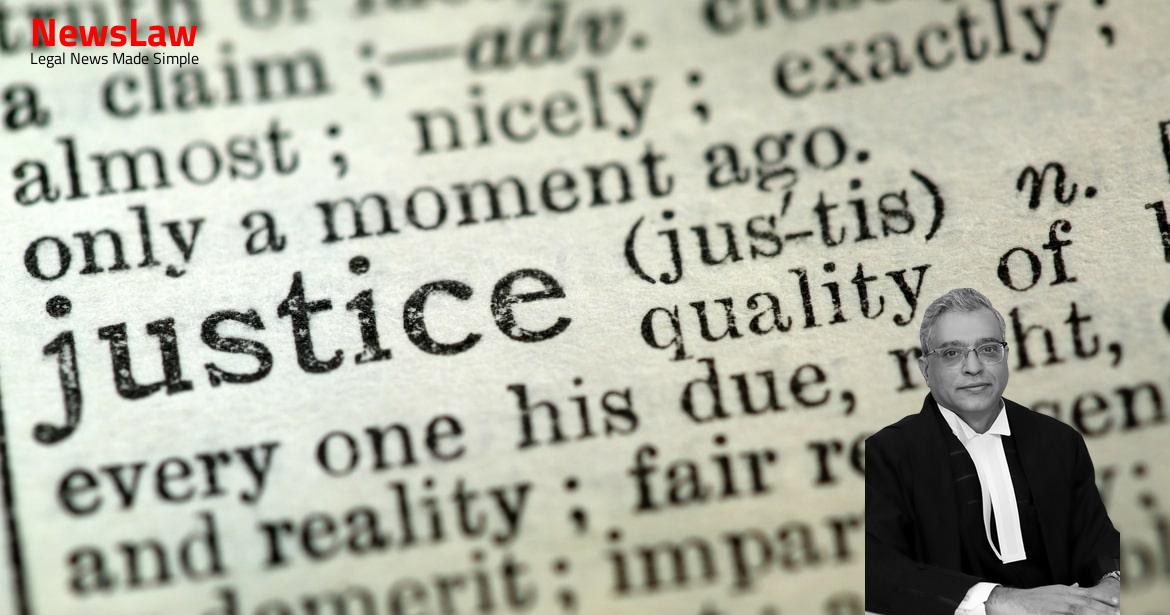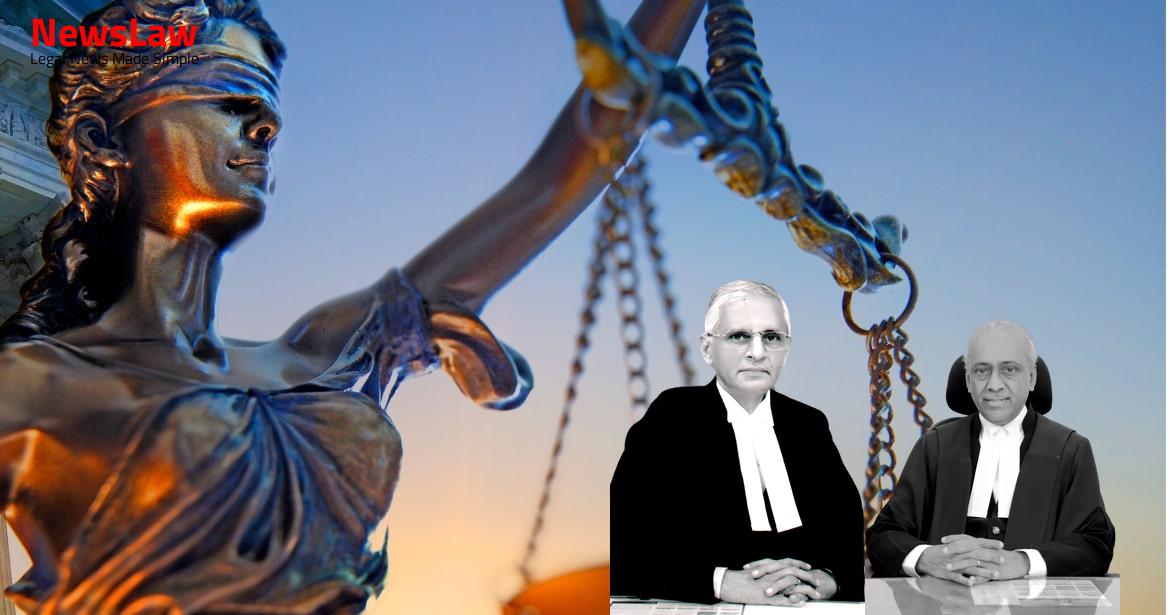In a significant legal development, the Supreme Court of India has delivered a landmark judgement regarding the High Court’s authority in disciplinary proceedings. This ruling has far-reaching implications on the administrative control and disciplinary jurisdiction of the High Courts, particularly in cases like the one involving the petitioner and respondent. Let’s delve into the details of this crucial judgement and understand its implications on the Indian judicial system.
Facts
- The charge memo dated 23.02.2017 was issued without informing the disciplinary authority, the Governor.
- A Committee was constituted chaired by Hon’ble Ms. Justice Hima Kohli as the Inquiring Authority under the Sexual Harassment of Women at Workplace Act, 2013.
- The petitioner was served with the Inquiry Report on 16.05.2018 and asked to submit a written representation within a month.
- Complaints dated 05.07.2016 and 11.07.2016 were forwarded to the concerned Police Station for appropriate action.
- The petitioner submitted a reply to the Committee on 02.09.2016.
- The Full Court resolved to constitute an Internal Complaints Committee to inquire into sexual harassment allegations against the petitioner.
- The Committee submitted a Preliminary Report on 05.11.2016 to the Full Court.
- The Full Court ordered the petitioner’s suspension on 13.07.2016 pending disciplinary proceedings.
- The Inquiry Report dated 09.03.2018 was submitted after a full-fledged inquiry by the Committee.
- The Full Court resolved to supply certified copies of meeting minutes to the petitioner.
- The Preliminary Inquiry Report dated 05.11.2016 was not considered for framing charges against the petitioner.
- The Full Court of the High Court decided in a meeting on 16.11.2016 to initiate disciplinary proceedings against the Judicial Officer.
- The disciplinary proceedings are for a major penalty under Rule 8 of the All India Services (Discipline and Appeal) Rules, 1969.
- The Judicial Officer has been suspended with immediate effect pending the disciplinary proceedings.
Also Read: Dispensation with Personal Appearance in Criminal Case: Landmark Judgement by Supreme Court of India
Issue
- The issues at hand are whether the High Court has the authority to initiate disciplinary proceedings against the petitioner and suspend him as per relevant rules
- Whether the decision of the Full Court to initiate an enquiry against the petitioner and place him under suspension was within its jurisdiction
- Whether the Preliminary Inquiry Report from the Internal Complaints Committee should have been provided to the petitioner and the lack of such provision affected the proceedings
Also Read: Case of Unnatural Death in Matrimonial Home: Supreme Court Judgment
Arguments
- Learned counsel for the petitioner argues that the Full Court of the High Court did not follow the procedure outlined in Act, 2013 upon receiving the complaint dated 05.07.2016.
- The contention is that the Full Court should have passed the complaint to the Internal Complaints Committee for investigation instead of issuing punitive directions against the petitioner on 13.07.2016.
- It is claimed that the Full Court’s actions were erroneous in issuing three punitive directives against the petitioner.
- Senior counsel for the respondents, Shri Narsimha, argues that the High Court, with its jurisdiction over judicial officers under Article 235 of the Constitution, had the authority to suspend the petitioner and order a disciplinary inquiry.
- Learned counsel for the petitioner requested the Court to consider submissions pointing out non-compliance of provisions of Act, 2013.
- The reliefs claimed in the writ petition were previously extracted.
Also Read: The Jodha Ram vs. Kaushaliya Dispute: Supreme Court Judgement Summary
Analysis
- The word “control” in Article 235 includes disciplinary jurisdiction.
- The history behind the enactment of these Articles indicates that “control” was vested in the High Court to secure the independence of the subordinate judiciary.
- The power of appointment, posting, promotion, and control over Judicial Officers of the State is vested in the High Court.
- The High Court is the sole custodian of control over the judiciary.
- The High Court has exclusive and comprehensive control over the subordinate judiciary.
- This control includes disciplinary jurisdiction, transfers, promotions, confirmation of promotions, premature retirement, and more.
- Suspension from service of a judicial officer with a view to hold a disciplinary inquiry is within the control of the High Court.
- The High Court can hold inquiries, impose punishments other than dismissal or removal, suspend judicial officers, and recommend dismissals or removals to the Governor.
- The High Court’s control is subject only to the power of the Governor in certain matters.
- The Full Court of the High Court can initiate disciplinary inquiries and suspend judicial officers based on sufficient evidence.
- The High Court’s control is not limited to the day-to-day working of the court but also encompasses disciplinary jurisdiction over judicial officers.
- The High Court’s control over disciplinary matters is not affected by the provisions of Acts like the Sexual Harassment Act of 2013.
- The Full Court had resolved to initiate disciplinary proceedings and suspend the petitioner based on a Preliminary Inquiry Report.
- The inquiry processes have been conducted in compliance with established rules and procedures.
- High Court alone is the sole authority competent to initiate disciplinary proceedings against Subordinate Judicial Officers or impose punishments.
- Contentions based on Article 239AA(4) of the Constitution were rejected, stating the scheme in NCT Delhi is not different.
- Important decisions like State of West Bengal v. Nripendra Nath Bagchi, High Court of Calcutta v. Amal Kumar Roy, and High Court of Punjab and Haryana v. State of Haryana were referenced.
- The term ‘control’ under Article 235 includes disciplinary control over District Judges and judges lower than the District Judge.
- The High Court is vested with disciplinary control over the subordinate judiciary to ensure independence.
- Discipline authority mandated by the All India Services (Discipline and Appeal) Rules, 1969 to draw up charge memo.
- Governor cannot involve Council of Ministers in judicial officer matters, the High Court is the ultimate authority.
- Constitution Bench emphasized that High Court is the custodian of control over the judiciary in terms of discipline and conduct.
- Decisions like Registrar (Admn.), High Court of Orissa, Cuttack Vs. Sisir Kanta Satapathy reaffirm that only the High Court can conduct disciplinary inquiries into judicial conduct.
- The scope of Article 235 includes disciplinary jurisdiction over judges, not just administrative control.
- The High Court is the disciplinary authority for judicial officers, while the Governor issues orders for dismissal, removal, or termination of services.
- Reference to Chief Justice of Andhra Pradesh and Others Vs. L.V.A. Dixitulu and Others case regarding employees of a High Court.
- Section 11 of the Act mandates an inquiry into complaints of sexual harassment in the workplace.
- The inquiry is to be conducted by the Internal Committee or the Local Committee, following relevant service rules or as prescribed.
- If the respondent is found to be an employee, the inquiry must proceed based on applicable service rules.
- If no service rules exist, the inquiry process is determined by prescribed guidelines.
- If the complaint is against a domestic worker, and a prima facie case exists, the Local Committee must forward the complaint to the police for appropriate action.
- If terms of a settlement reached under Section 10 are not adhered to, the Committee must continue the inquiry or forward the complaint to the police.
- Both parties involved in the inquiry are entitled to a hearing and access to the findings to make representations before the Committee.
- Chapter V addresses the inquiry into complaints with Section 13 regarding the inquiry report.
- Upon completion of the inquiry, the Internal Committee or Local Committee must provide a report of findings to the employer or District Officer within ten days.
- Recommendations are made based on whether the allegations are proven or not, including actions for sexual harassment as misconduct and deductions from the respondent’s salary to compensate the aggrieved woman or her legal heirs.
- If the employer cannot deduct the sum from the respondent’s salary, other measures for payment may be directed.
- The employer or District Officer must act upon the Committee’s recommendations within sixty days of receipt.
- Non-supply of Preliminary Inquiry Report does not vitiate the proceedings
- Submission of learned counsel for the petitioner not accepted by the court
Decision
- Subject to observations and liberty as above, the Writ Petition is dismissed.
- All questions and issues are left open to both the parties.
- The petitioner can raise all pleas of facts and law regarding the charge memo dated 23.02.2017 and the inquiry conducted by the Internal Complaints Committee.
- The court considered limited issues as pressed by the petitioner.
Case Title: P. S. MALIK Vs. HIGH COURT OF DELHI
Case Number: W.P.(C) No.-000705 / 2018



